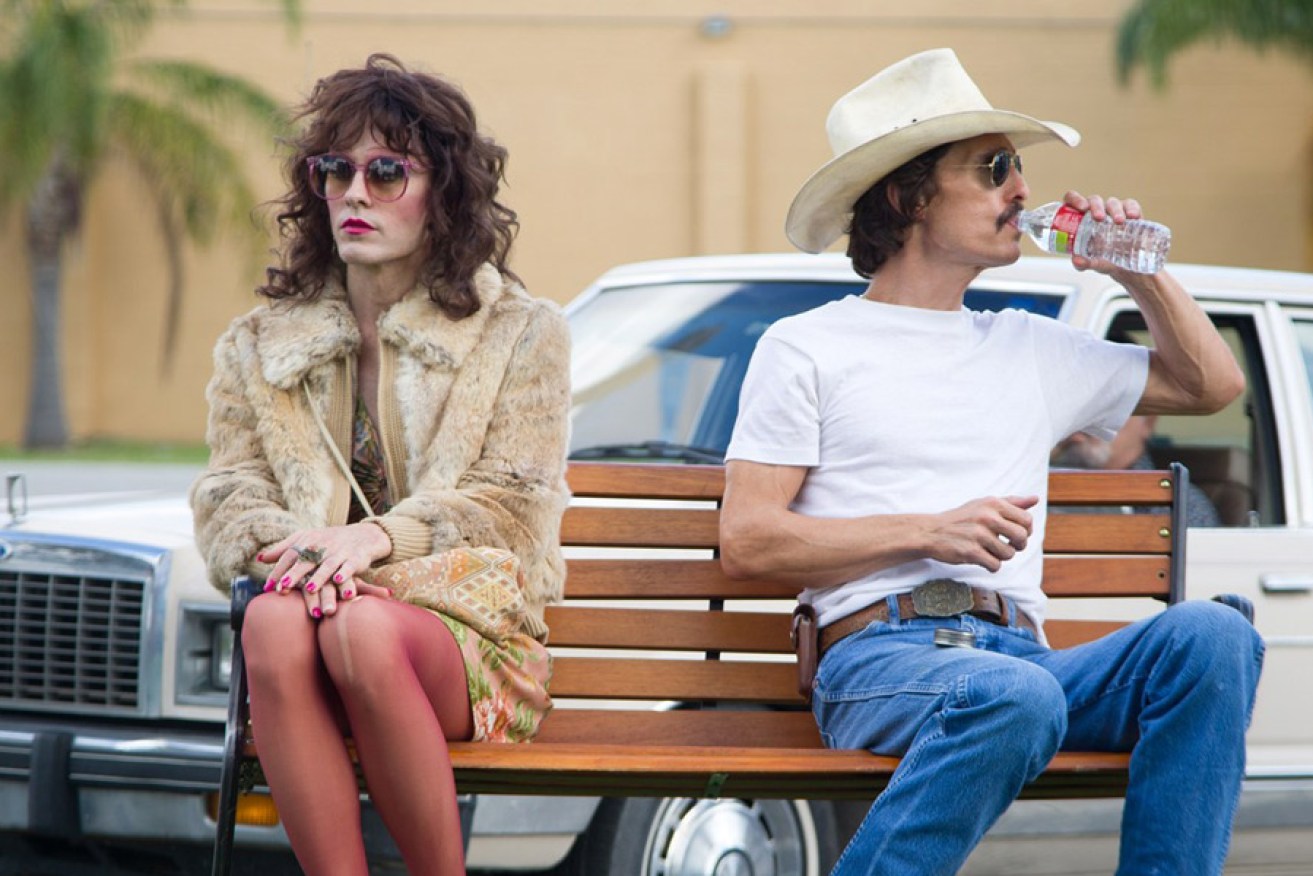Narratives about the AIDS crisis are universally gut-wrenching to behold. From my privileged position a generation below, with the advantages bestowed by awareness-raising, education and research, I want to reach into the screen and shake everyone. What are they doing, having indiscriminate sex and sharing needles? Don’t they know?
Oh, wait.
Dallas Buyers Club is the story of one man diagnosed with HIV in the mid-’80s. Ron Woodroof is a hard-drinking, big-gambling, coke-snorting, bull-riding electrician from the Texas oilfields. Played by an alarmingly gaunt Matthew McConaughey, the Woodroof we meet is already a shadow of a man and – to say the least – a prick.
When Woodroof has an accident on a rig, he wakes up in hospital to find two masked doctors with some unexpected news: he has HIV which has developed into AIDS, and an estimated 30 days to live. McConaughey gives a surprisingly dynamic and powerful performance, and has clearly done a ton of work to nail this role.
Despite the grim prognosis and his subsequent alienation from the macho culture, Woodroof’s survivor instinct kicks into gear as he researches the HIV treatments on the horizon. He begins smuggling as-yet-unapproved antiretroviral drugs into the US, eventually expanding his operation to serve the HIV-positive population in Dallas, comprised mostly of gay men.
What follows is a fascinating exploration of the relationship between science, ethics and individuals. Woodroof is in a cat-and-mouse game with the US Food & Drug Administration, which is dragging its feet on getting new drugs to AIDS sufferers, instead focusing on the rigid development of an expensive new treatment – AZT – which is patented by a huge American pharmaceutical company.
I am a passionate advocate for science, and understand how vital staged drug testing is to developing new products. But when caring for the unwitting victims of a deadly pandemic, how can a doctor conduct a double-blind, placebo-controlled trial in which half of the participants are doomed to certain and unpleasant death?
Is it okay for 1000 people to die after receiving a placebo in a study that creates a drug able to save hundreds of thousands?
Jennifer Garner is wonderful as Dr Eve Saks, a physician who embodies this struggle, and whose faith in the medical establishment is shaken as more patients die while Woodroof lives on his cocktail of Mexican pills.
She is joined in the supporting cast by Jared Leto as Rayon, an HIV-positive transgender woman with whom Woodroof teams up to find new members for the buyers’ club. Leto gives a touching performance, and the development of Rayon and Woodroof’s relationship is one of the most satisfying aspects of the movie. However, as great as Leto is, it would have been nice to see what an actual transsexual person could bring to the role.
I must pause here to comment on the gender and sexual politics at play in Dallas Buyers Club. Woodroof is a mean-spirited bigot, and the movie contains a liberal dose of homophobic and transphobic slurs. This is true to the times and the location. AIDS was viewed as the “gay disease”, and it is fascinating to see the effect of this stigma on a very straight man. I struggled a little, however, with the presentation of Woodroof as a “saviour” for many homosexual AIDS patients. Clients of the club are passive, and it is possible to view the film as suggesting that these people were just not as strong or clever as the assertive, manly Woodroof; that they were content with their fate.
Ultimately, I think the film gets through this construct and manages to portray the group as one thrown together by a shared dire circumstance, and doing its best in the face of corporate and regulatory indifference. Yes, Woodroof charges for membership of the club and access to its wares, but $400 is far less than the $10,000 per month price tag big pharma attached to AZT upon its release. Who is truly profiteering from suffering?
The question the film poses is grand. What is more important: individual agency or collective benefit? Is it okay for 1000 people to die after receiving a placebo in a study that creates a drug able to save hundreds of thousands? Common sense says yes, but facing the terror of a painful, premature death, would you be comforted knowing others will live, or would you fight tooth and nail?
Dallas Buyers Club offers fairly pedestrian direction and cinematography, and director Jean-Marc Vallée has far too much fun with smash cuts every time Woodroof passes out, which is often. But this is one of those movies for which the story, characters, currency and philosophy rise above the craft to create something very compelling.
More InDaily film reviews:
Mandela: Long Walk to Freedom
Last Vegas
Grudge Match
12 Years a Slave
The Wolf of Wall Street
Inside Llewyn Davis
Jack Ryan: Shadow Recruit
The Book Thief
Saving Mr Banks





